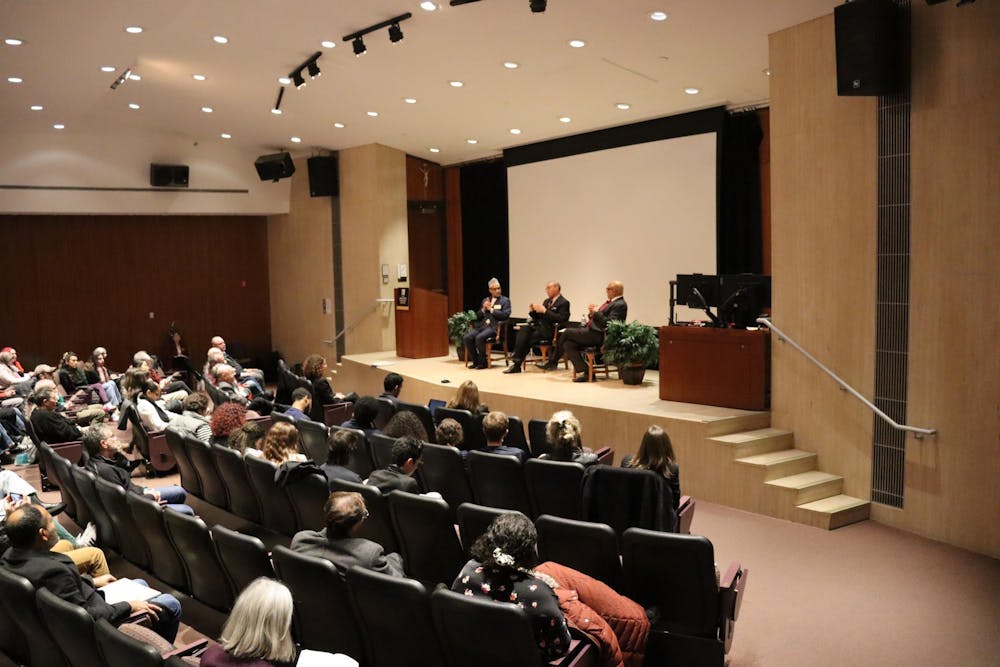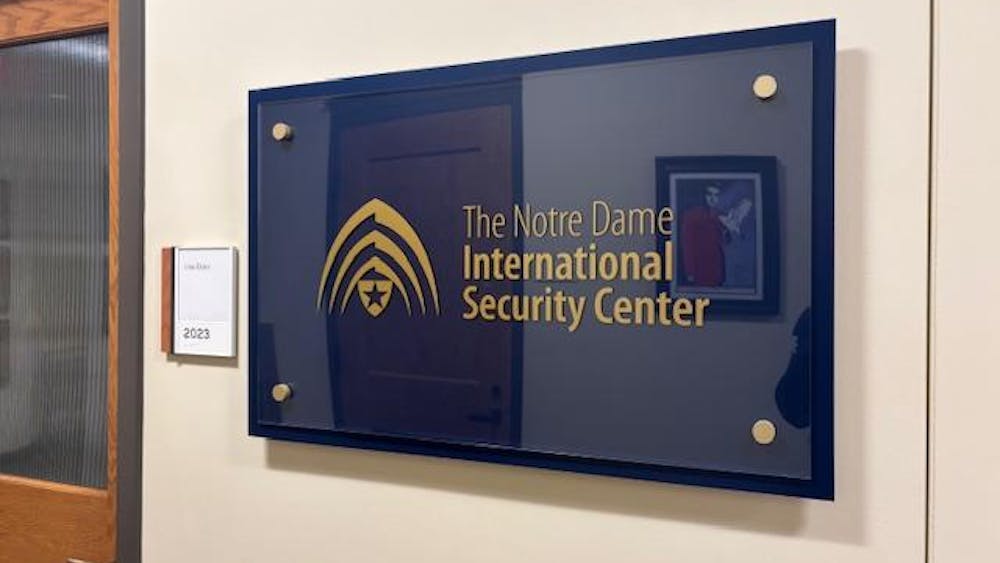Allan Boesak, the “global face of the South African anti-Apartheid movement alongside the late Desmond Tutu” according to the Kroc Institute, spoke in Carey Auditorium on Friday at noon. Boesak, a Dutch Reformed Church cleric and politician, spoke as part of an event titled “Palestine/Israel: Lessons from South Africa.” Boesak spoke to experiences of apartheid — a system of racial segregation and discrimination — in South Africa, and expanded his critique to Israel in a discussion of “global apartheid.”
The event began with remarks from Atalia Omer, a professor of religion, conflict and peace studies in the Keough School.
Identifying herself as “an Israeli Jewish person,” Omer condemned Israeli policies.
“What shattered on Oct. 7 was the illusion that Jewish safety could be maintained in perpetuity by keeping millions of Palestinians in a variety of cages,” she said.
Omer also discussed the nature of the Oct. 7 violence.
“As a Jewish person with roots in Europe … I am someone who carries on her soul that intergenerational trauma of the Holocaust. My friend Hayim who was murdered on Oct. 7 was not murdered because he was Jewish, but because of the occupation and siege on Gaza,” she said.
Ebrahim Moosa, professor of Islamic thought and Muslim societies, originally from South Africa, introduced Boesak.
“Prophetic resistance for Dr. Boesak is just not testimony, but also a witness for an alternative. This witness proclaims that both black and white, poor and rich, Arabs and Jews are all created after God’s image which allows for no discrimination and rejects subjugation,” he said.
Moosa recalled the Purple Rain protest in Cape Town.
“Alan, I want to recall our work together in South Africa — how along with hundreds, if not thousands of others, we were arrested when the mass democratic movement defied the state of emergency in [September] 1989. On that day, the police, the military sprayed us with purple dye [with a] water cannon,” he said.
Boesak’s began his remarks by discussing why he advocated for the people of Gaza.
“I’m often asked by people from our own townships, ‘Why are you so insistent upon Gaza or are you not forgetting our own struggles that are not healed?’ And I tried to explain to them the connections between the struggle in Palestine and the struggle in South Africa, and remind them of the fact that these struggles are global struggles,” he said.
Boesak recalled visiting the largest Palestinian refugee camp in Lebanon, Ain al-Hilweh, in 1987.
“I will never forget the woman who was our host that afternoon. We talked about struggle and what she was doing there and how she had to flee from the home in Palestine and was now part of this exile refugee community,” Boesak recalled. The woman beseeched him to remember her cause. “Please do not forget us, remember what you saw here,” she told him.
Boesak said the allegation of apartheid is not limited to Israel, but that it is part of a larger global challenge.
“The term global apartheid expresses our understanding that apartheid is a system of governance, expressed in politics and in actions that may occur anywhere and under different circumstances,” he said.
A cleric and theologian, Boesak argued Christianity directs its adherents to stand with the oppressed.
“Jesus Christ is Lord. What does that mean? It means that God, the God of Jesus of Nazareth, not the false god that blesses slavery and apartheid and genocide and oppression, that God is the God of justice,” he said. “The church must therefore stand by people in any form of suffering and need.”
Boesak also referenced former President Ronald Reagan’s call to then-Prime Minister Menachem Begin, calling on Israel to halt fighting in Lebanon.
“Mr. Biden, we are speaking to you as the Church of Jesus Christ,” Boesak said. “Stop the complicity of this country in the shedding the blood of Palestinian children. Stop all military aid right now. Call for that ceasefire. You know that you can pick up that phone. Mr. Reagan once did.”










